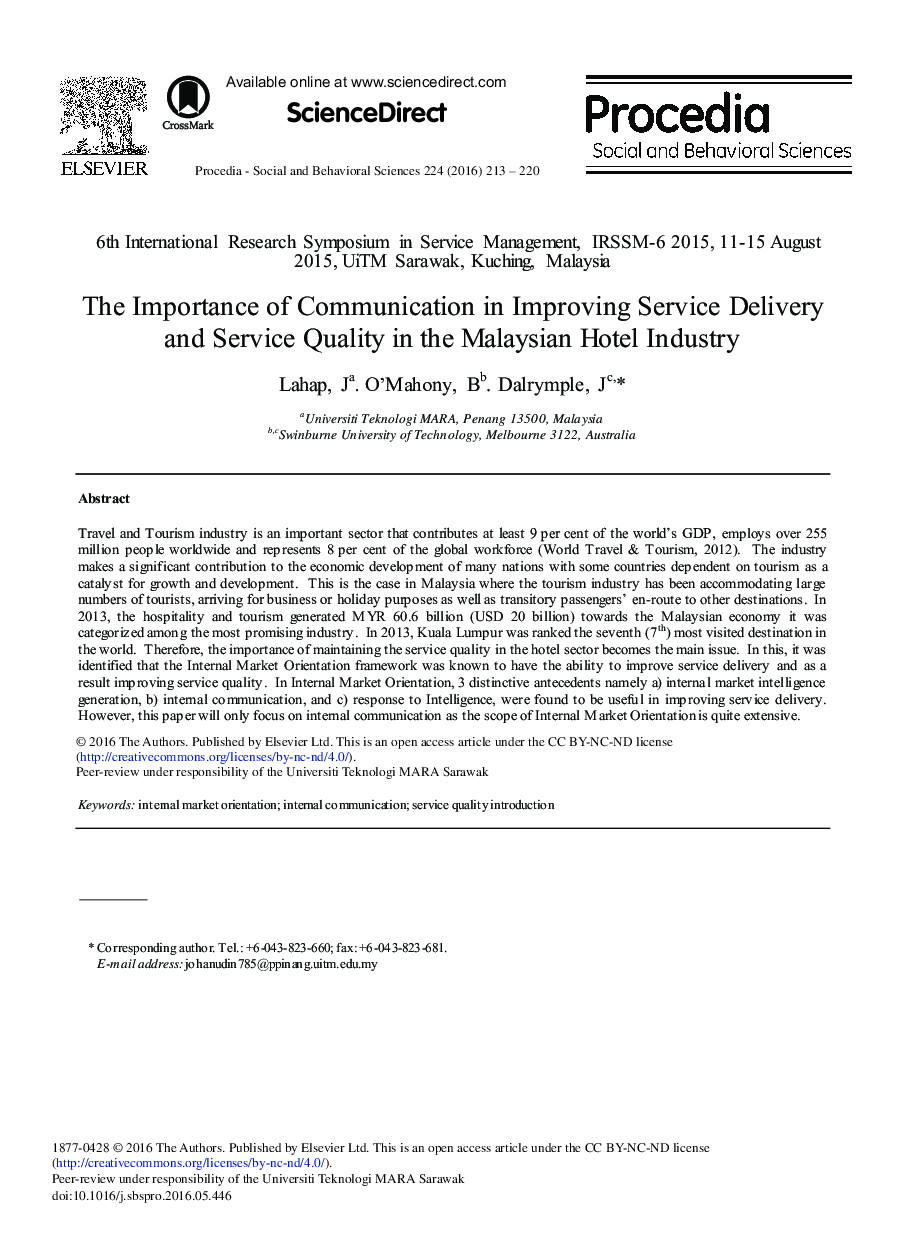| Article ID | Journal | Published Year | Pages | File Type |
|---|---|---|---|---|
| 1107404 | Procedia - Social and Behavioral Sciences | 2016 | 8 Pages |
Travel and Tourism industry is an important sector that contributes at least 9 per cent of the world's GDP, employs over 255 million people worldwide and represents 8 per cent of the global workforce (World Travel & Tourism, 2012). The industry makes a significant contribution to the economic development of many nations with some countries dependent on tourism as a catalyst for growth and development. This is the case in Malaysia where the tourism industry has been accommodating large numbers of tourists, arriving for business or holiday purposes as well as transitory passengers’ en-route to other destinations. In 2013, the hospitality and tourism generated MYR 60.6 billion (USD 20 billion) towards the Malaysian economy it was categorized among the most promising industry. In 2013, Kuala Lumpur was ranked the seventh (7th) most visited destination in the world. Therefore, the importance of maintaining the service quality in the hotel sector becomes the main issue. In this, it was identified that the Internal Market Orientation framework was known to have the ability to improve service delivery and as a result improving service quality. In Internal Market Orientation, 3 distinctive antecedents namely a) internal market intelligence generation, b) internal communication, and c) response to Intelligence, were found to be useful in improving service delivery. However, this paper will only focus on internal communication as the scope of Internal Market Orientation is quite extensive.
